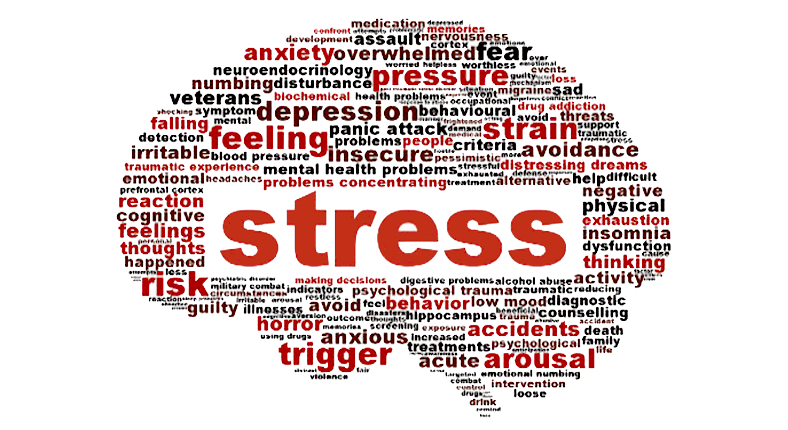By Amy Karagiannakis
We all encounter stress in our daily lives, but some of us are able to cope with it better than others. Dave is on the football team, USG representative, serves as project manager for his Enterprise team, works part-time as an intern, stays active in his fraternity, serves on the MUB Board, is a member of the Pony Brigade, maintains a 3.97 GPA, and is probably one of the most laid back, got-it-together people you’d ever meet. Ok, ok, Dave is not a real person, but for the record, the Pony Brigade is a real Michigan Tech Student Organization. The point is that all of us know someone like Dave or have encountered someone like him in our past. How do they not have daily nervous breakdowns?

Picture from: http://www.theplaidzebra.com/it-turns-out-that-selflessness-is-the-easiest-way-to-save-you-from-stress-and-extend-your-life-2/
Understanding how our body deals with stress is a good first step to managing it, so let’s review 8th grade science. Our nervous system is made up of the sympathetic and the parasympathetic nervous system. We will focus on the former. The sympathetic nervous system regulates what Walter Bradford Cannon called our fight-or-flight response. When this process is stimulated, your blood pressure rises, your heart begins to race, muscles tense up, and your breathing intensifies. If your typical day-in-the-life is consistently stressful, you may be conditioning your sympathetic nervous system to stimulate the fight-or-flight response for every minor circumstance. Experiencing this reaction multiple times a day can really wreak havoc on your mind and body. Finding ways to bring your heart rate down and relax your mind is important to managing stress and the triggers that cause it.

I find the most effective way to deal with stress is meditation. Meditation can be practiced by anyone. There is no wrong way to meditate, but here are some guidelines that can help you benefit from it. Finding a place for meditation during the day can sometimes be a difficult task. However, these are when our stress levels are highest. If you can’t be at home and you are looking for a place to meditate, consider the following options around campus: library study room, an empty classroom, Counseling Services Relaxation Room, empty common areas in the residence halls, or even outside in the warm sun on a nice day. Your meditation spot doesn’t necessarily need to be quiet. Some people prefer background noise or music to complete silence. Once you have your spot, get comfortable. Despite popular belief, you do not have to sit in full lotus position to meditate. In fact, I wouldn’t recommend it.

Close your eyes and slow your breathing. Focusing on your breathing will help eliminate the negative thoughts and feelings that triggered your stress. If you are still having trouble freeing your mind from negativity, try focusing on an object or image that relaxes you. Others may find that the repetition of a single word said softly and slowly helps to relax them. Whatever you choose, the point is to find something that doesn’t require a lot of thought, but enough that your mind is able to focus on that instead of the negative thoughts and stressors. As you continue to breathe slowly and deeply, your heart rate will begin to slow, your muscles will relax, your mind will clear. Meditate for as long as it takes to reach this point of tranquility.
Statistics show that stress among college students is on the rise. The demand to be involved in multiple extracurriculars, getting internships and/or co-ops, keeping that GPA up, applying for graduate school, exams, getting a job, the availability of immediate communication via email, text, and social media all contribute to the stresses of today’s generation of college students. Recurrent, long-term stress and anxiety can lead to a long list of physical and emotional ailments.

If you feel stressed and need help, remember that you are not alone. Michigan Tech offers one-on-one and group counseling services that are free to all Michigan Tech students. If you find meditation or other relaxation techniques to be unhelpful and you are experiencing physical and/or emotional symptoms of stress, please seek help from a counselor or doctor.